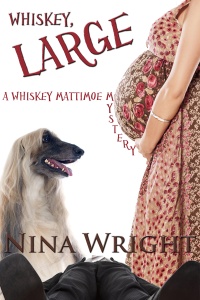From my comment on Write Me A Book John blog yesterday, it seems many who also commented there are against attending writers’ conferences. Information can be enlightening, so in this post, I’m going to report on what’s good and bad about writers’ conferences from the perspective of someone who has attended over 40 of them.
To clarify, I’m not an eccentric millionaire but was invited in the capacity of literary agent, manuscript consultant, and workshop facilitator. Also, to alleviate writer’s cramp, I’ll be referring to writers’ conferences from now on simply as just conferences.
What’s good about conferences? First of all, there are usually classes on a variety of subjects of interest to writers of all stripes. Most of these classes are taught by publishing professionals, including literary agents, editors, movie producers, marketing experts, and published authors. The variety and depth of these classes depends on the location and size of the conference and who is teaching the classes. The reason I mention this is the obvious—the closer to New York City a conference is held, the more major publishing house editors and big name agents will be in attendance. Why? Big houses and agencies can’t afford to have all their staff at a far-away conference. Close to NYC conferences eliminate this factor. Makes sense, right?
One of the biggest advantages of attending a conference, besides the classes offered, are the consults. A consult is where you sit down for a ten-minute chat with an agent or editor and give him or her an overview of your project. (Caution: There’s usually an additional cost involved here, with the money going to the conference organization.)
Many authors complain about gatekeepers. Conferences are places where those gates open wide. For instance, if you do well in your pitch session with one of these pros, and they like what they hear, you get an invitation to send them some, if not all, of your work–more on how to do this in another post.
Agents and editors attend conferences looking for that next best-seller. If an editor requests your work at a conference, you bypass the need for an agent, as most major publishers will not accept unsolicited queries. Unsolicited means that they won’t accept anything unless they request it from an agent (or you, but this means you already know the editor).
One bad thing about conferences is the cost to attend. The costs, again, vary depending on the size of the conference and its location. For instance, if you have to fly to a conference, flight and hotel costs must be added in. If you live close and can drive back and forth, this naturally eliminates those costs.
Most conference attendance/registration fees run $200 to $400 for the entire conference, again depending on location and size. Add in airfare, meals, and hotel costs, and a conference can easily cost over a thousand dollars; whereas, if a writer lives within driving distance, many of these costs can be reduced or even eliminated. If you drive, you have no hotel costs, plus you can choose to attend for one or two days instead of the whole conference.
Usually, for a Friday, Saturday, Sunday conference, Saturday might be the best day to attend. Most conferences list their activities online, so it’s very easy to select the best day, or days, to attend that will allow you to do what you want to do while there.
One advantage not always mentioned is the opportunity to enter a conference writing contest. These contests usually use agents or editors to evaluate the top writers in each category. If your work happens to make it into the final rounds and gets placed in the top three places, there’s a chance this agent or editor might offer representation or a contract. I have judged these contests in the past and have picked up clients from the winners. Entry costs for contests vary, and, again, writer organizations use these funds to support other activities that will benefit their writers.
There’s also usually an awards banquet held in the middle of the conference. Attendance to this is not mandatory. If you didn’t enter you work in a conference’s writing contest, you can eliminate this banquet to cut down on costs.
One of the biggest reasons for attending conferences is getting known. This is only an advantage, however, if you’re a marketing dynamo the likes of J. A. Konrath. If you’re shy and withdrawn, most of this advantage is lost to you. Even if you like people, skipping some of the functions like meals and the banquet remove the opportunity chat with a publishing professional. Also, at conferences there’s usually social gatherings, which are places to get one-to-one time with an agent or editor in a more informal setting.
For the most part, conferences are what the individual makes them. They can be boring or give the individual writer‘s career a big boost. It’s difficult for a writer to connect directly with publishing industry professionals. Conferences are about the only way to do this.
By the way, someone mentioned BEA. BEA is not a writer’s conference but rather a place for publishers to display their upcoming titles and a place for agents to sell rights.

